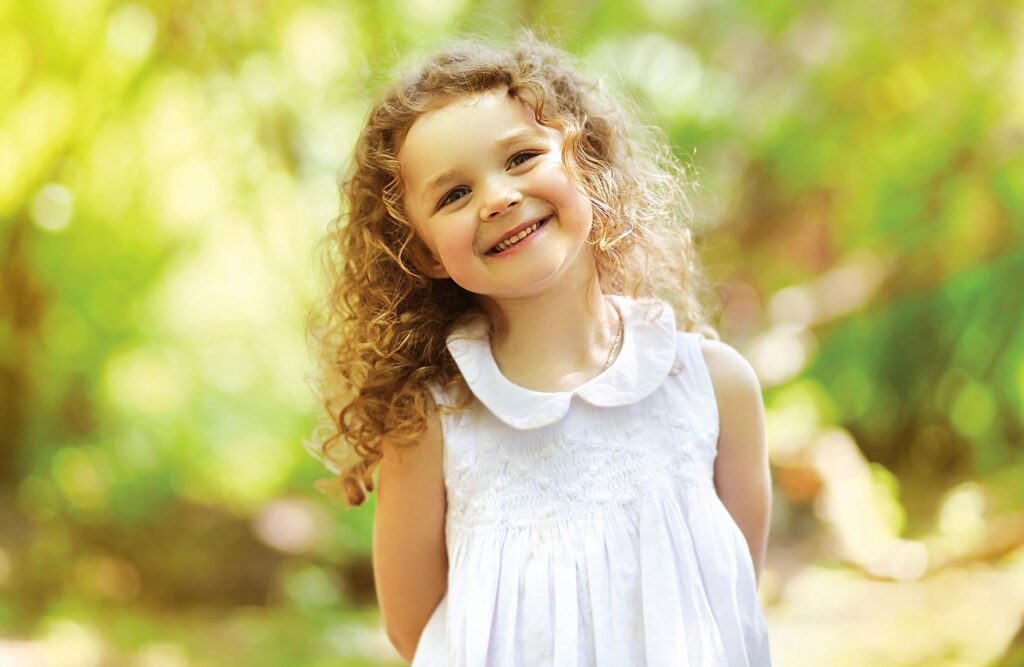It is common in some babies that at bedtime, they only want to do it in their mother’s arms or on the chest and, when it seems that the little one is fast asleep and we try to take him to his crib, he wakes up screaming and crying. We pick it up again and think, “the crib didn’t even have spikes!”. If we pick him up again, we leave him asleep and try the same operation, leaving him in his crib. The same thing happens again as if he had a radar. And so on repeatedly. This is called spiked cradle syndrome.
Adjusting to a new reality outside the womb
Newborn babies, after spending nine months in a uterine environment, being born and getting used to another reality is not an easy task. In addition, we must know that “human cubs” are born very immature if we compare them with other mammals that as soon as they are born, they stand up, suckle on their own and follow their mother in a few days. Most animals stay with their young for as long as they need it. If we look at primates, our closest cousins, we can understand it. You will see that these animals never release their young when they are hooked on their body to leave them alone in a barren place.
During pregnancy, the baby has been wrapped and contained within the uterus, feeling the heartbeat, being gently rocked by the constant rocking and used to being in contact all the time with its mother. This is his ultimate safety experience. Many babies need to continue to feel this sense of protection, and it can clash with their parents’ expectations. The best advice that can be given is: follow the child, give him what he needs and time, and her maturation will do the rest. It is useless to let a desperate baby cry in a crib to sleep since it does not sleep, suffers and does not let adults rest. In addition, uncontrolled crying increases the secretion of stress-related hormones such as adrenaline and cortisol, undermining good present or future emotional management.
How does the crib detect if he is asleep?
It is a common question. It is as if the baby had radar or sensor that, although asleep, detects that he is not in his mother’s arms, that is, in a safe place.
To understand this, which is partly real, we must understand the phases of sleep:
REM phase: it is a short and deep sleep phase.
Non-REM phase: Babies spend almost all of their hours asleep in this phase. It is a shallow phase and has a survival function since having a superficial sleep allows the baby to react to any unpleasant or potentially dangerous change. And in this, the evolution of our species has had a lot to do with it. If the baby is left alone in the middle of the savannah, jungle, or forest, she will be easy prey for predators. The human baby has a fire engraving that he is only safe with the caretakers of him. This is the bad news in this article, and there is little we can do other than wait for the child to mature and feel safe.
Spiked crib syndrome: baby on top of a crib crying and a woman’s arms trying to catch it
Tips that can help
We will give some tips to better deal with this issue, although you should know that it will be a slow and progressive process, so it is better not to have high expectations and then not get frustrated or end our reserve of patience.
The best advice is to do what your instincts dictate, regardless of the comments of others. When he grows up, he will not want you to sleep in your arms even if you are dying to do it … and that you will miss him.
Empathize with the little one and not despair: if we hold, contain and remain calm, that is what we will transmit to the baby. If we get angry, desperate and angry, we will give our child little security, worsening the present situation and that of the following days. We have to know that the child is fine (because even though he cries, he calms down in his arms… a sick child has an inconsolable cry) and that his behaviour is related to a survival instinct.
Co-sleeping: it is a very good option as long as safety regulations are respected. It is usually very practical to maintain and promote breastfeeding and to comfort the baby. It is a way to sleep for everyone, babies and parents.
Having a dodó or ragdoll: some babies are attached to some rag stuffed animals that they carry everywhere, and it serves as comfort and security for them to fall asleep.
Promote a sleeping environment: keep the room at a suitable temperature, without noise, low light and well ventilated. Soft background music or lullaby songs are also a good strategy.
White noise can help us: white noise (that of a hairdryer, vacuum cleaner, or the one that some apps specially designed for this purpose have) reminds the baby of intrauterine noises and can help them relax and fall asleep.
Does r a kibble: For younger babies, wrapping them in muslin can help them fall asleep and remind them of the uterine containment they felt in the womb.
One last thought. Not so many years ago that cribs, bassinets, hammocks or high chairs existed … And until children were able to move independently on their own, they spent all that time in the arms of their caregivers. This does not mean that they are harmful or should not be used, since they can help us in raising babies, there will be children who accept them quickly and others who do not, will have different rhythms and needs, but both will be normal babies.
Surely you know parents whose babies sleep peacefully in their cribs, but this is not the case with your child. When you try to put him down in her crib after having rocked or fed him, he immediately wakes up crying and asking for you to pick him up again. Colloquially it is known as the Spiked Crib Syndrome: Babies who cry when you leave them in the crib. Next, from Invía Psychology, I will tell you why it happens and what we can do.
Why do babies wake up when left in the crib?
Many mothers and fathers get frustrated at not understanding why their babies wake up when left in the crib. If we think about it, it makes sense. Where would you prefer to sleep? In a warm place, wrapped up and feeling safe while the arms of a loved one gently rock you? Or on a flat, cold surface and where you don’t know if your survival is guaranteed? ⠀
Babies spend 9 months in their mother’s womb, accompanied by the sound of her heartbeat, her voice and her breathing, which makes them feel protected and safe. Once they are born, they do not unlearn to sleep in this way and what they need is for the sensation experienced during their intrauterine life to be reproduced to continue feeling that protection. And what is the closest thing to this previous life? Being in the arms of mom or dad, close to the heart.
But, how is it possible that the baby knows that you are leaving him in his crib? For one thing, young babies’ sleep is seldom deep enough that they don’t notice they are being let go. This is behaviour inherited from our ancestors. Who do you think had the best chance of surviving in the savannah? A sleeping baby that can be left on the ground at the mercy of predators? Or a baby crying to be back in his mother’s arms when she feels like she is being left on the ground? Therefore, it is obvious that they try to guarantee survival through contact with their caregiver.

